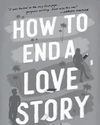Structure at the Chapter Level
Writer’s Digest
|July - August 2023
Keep 'em reading with irresistible Big Bang-Cliff Hangs.

Use Big Bang-Cliff Hangs to Create Page-Turners
Identifying which of the two broad storytelling structures best suits your story, linear or nonlinear, is a key to storytelling success, but it's not the only structural decision authors need to make. In addition to choosing the best overall structure for your story, you also need to consider structure at the chapter level.
Every chapter offers a new opportunity to hook your readers' interest. The most effective way to do this is to start with a Big Bang, something that immediately inspires reader curiosity. The incidents that follow the Big Bang should satisfy that curiosity and seamlessly lead to a Cliff Hang, an ending that inspires more curiosity. This Big Bang-Cliff Hang structure keeps your readers turning pages.
GLOSSARY
The following words and phrases are used to convey specific meanings in this article.
• BIG BANG: Jane K. Cleland's term for an approach to starting a chapter that inspires immediate curiosity.
• CLIFF HANG: A shortened version of a "cliffhanger," which refers to a chapter ending that inspires urgent curiosity. The term, by the way, came from Thomas Hardy's novel, A Pair of Blue Eyes (1873), which ended with a character literally hanging from a cliff.
• THE MIDDLE: The section of your story that satisfies reader curiosity by moving the plot or storyline forward and setting up the next Cliff Hang.
• STORY AND PLOT: Story refers to your overarching, thematically based tale. Plot refers to the consecutive series of incidents that, taken together, tell your story. Your story is high-level. Your plot is incident-based.
Esta historia es de la edición July - August 2023 de Writer’s Digest.
Suscríbete a Magzter GOLD para acceder a miles de historias premium seleccionadas y a más de 9000 revistas y periódicos.
¿Ya eres suscriptor? Iniciar sesión
MÁS HISTORIAS DE Writer’s Digest
Writer’s Digest
100 Best Markets for Writers
A list of print and online publications looking for freelancers to contribute their knowledge on everything from pet care to finance and beyond.
65 mins
Yearbook 2026

Writer’s Digest
Memoir Plus
Add a bonus to your personal narrative for a marketing boost.
8 mins
Yearbook 2026
Writer’s Digest
Surefire Ways to Sell Your Children's Book
In my 28 years editing children's books, I've learned that publishing exists at the intersection of art and commerce.
5 mins
Yearbook 2026
Writer’s Digest
The ABCs of Freelance Success
Many freelance writers, especially those at the beginning of their careers, tend to place almost all of their professional focus on one specific component: craft.
5 mins
Yearbook 2026

Writer’s Digest
How to Write in Different Genres
Emiko Jean and Yulin Kuang share tips and strategies for how they successfully write in different genres and mediums.
8 mins
Yearbook 2026
Writer’s Digest
Small But Mighty
Why small presses might be the perfect home for your book.
8 mins
Yearbook 2026

Writer’s Digest
The Story Behind the Story
What's backstory, and what's it doing here anyway?
6 mins
Yearbook 2026

Writer’s Digest
2025 Year in Review
Publishing expert Jane Friedman recaps the biggest news in the industry.
8 mins
Yearbook 2026

Writer’s Digest
What Is Your Story Question?
When a story isn't working—when you know it's not quite coming together, when beta readers and critique partners confirm your fears but can't put a finger on why, or you're not getting offers from agents or publishers—savvy authors start trying to diagnose the issue by examining its component parts, like characterization, plot, and stakes.
6 mins
Yearbook 2026
Writer’s Digest
Writer's Digest 27th Annual 101 Best Websites for Writers
For the 27th year, Writer's Digest is shining a light on 101 websites with a goal of helping writers in a variety of ways.
26 mins
Yearbook 2026
Translate
Change font size

